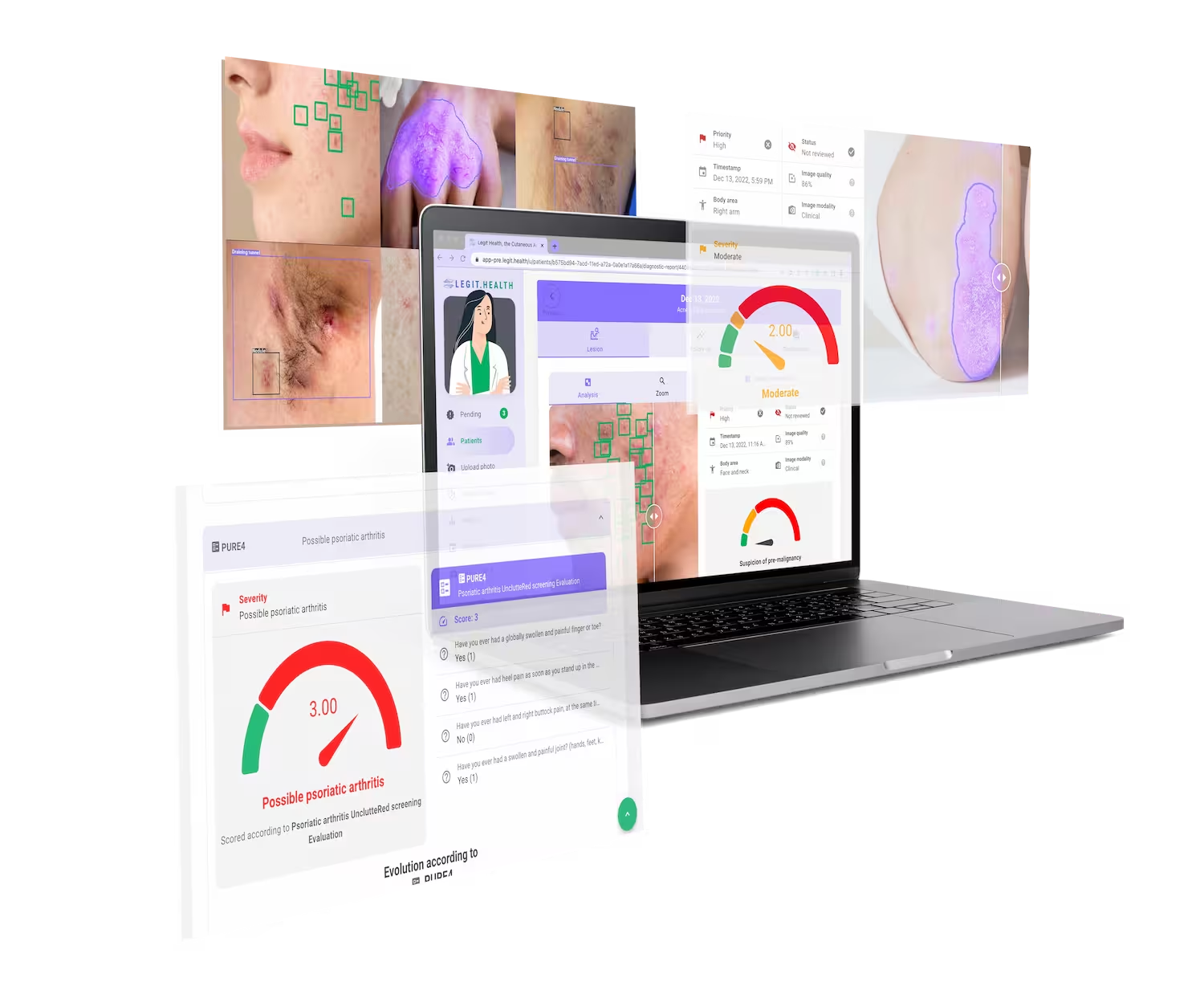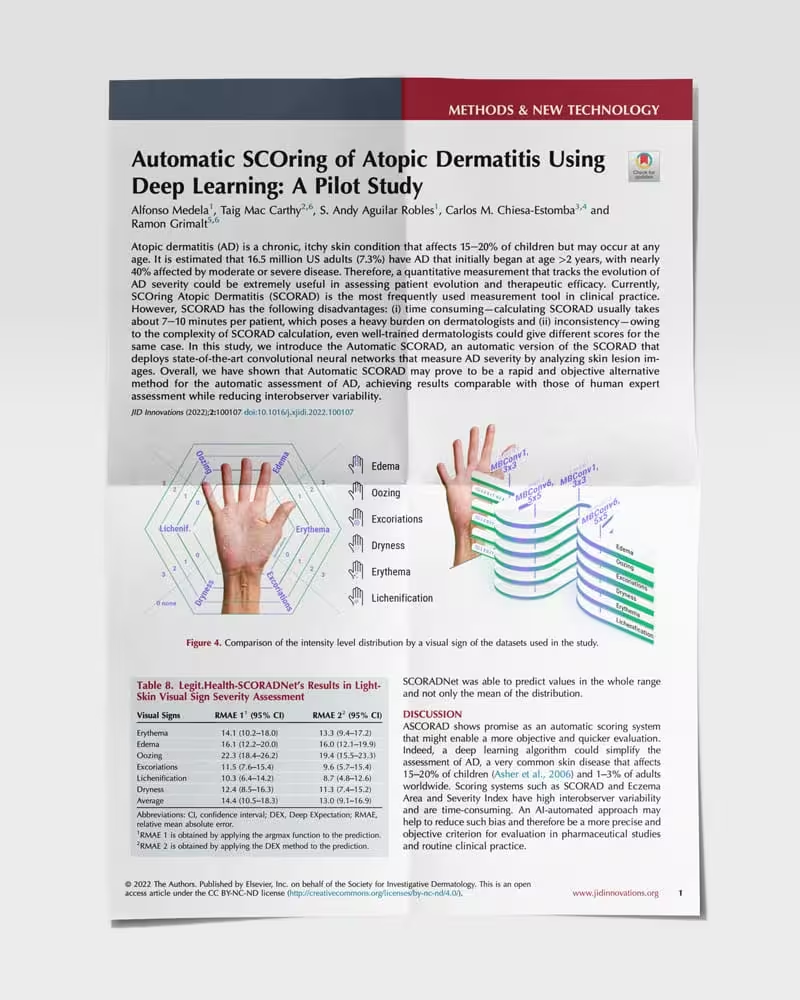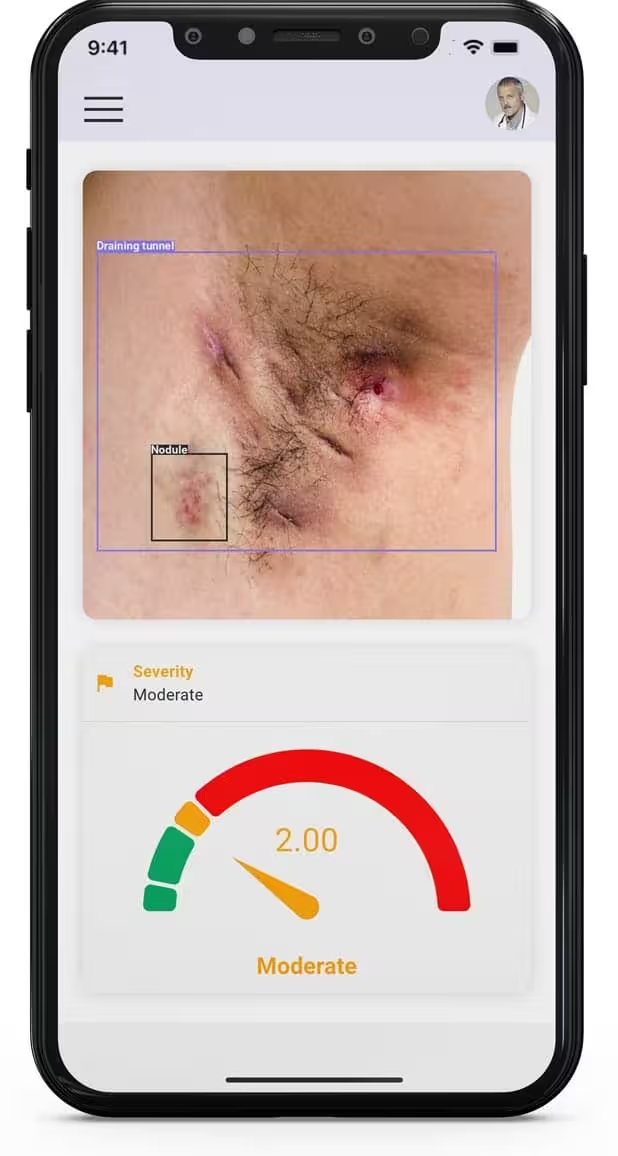
Automatic scoring system
3 years ago®






Ensure that the right patient sees the right specialist at the right time and improve the efficiency of your clinical workforce.
Automatically measure if patients are responding to treatment with the high-precision neural network.
The artificial intelligence provides immediate data to the HCP to assist them in their diagnosis.
Automatically fills in the most common scoring systems (PASI, SCORAD...) just by taking a smartphone image.
Ensure in real-time that images taken by users have sufficient clinical utility and automatically provide assistance.
An easy-to-use interface that allows users to upload photos and understand all the clinical data generated.

Automatic scoring system
3 years ago
Q&A
2 years agoclinical trials
6 months ago
telemedicine
1 year agoThere are many ways of implementing Legit.Health's technology into your workflow, depending on your own goals and capabilities.
Some examples include:
Automatic Scoring of Atopic Dermatitis using Deep Learning (ASCORAD): A Pilot Study. A fast and objective alternative method for the automatic assessment.
Automatic Urticaria Activity Score (AUAS): A Novel Technology for Urticaria Severity Assessment Based on Automatic High-Precision Hive Counting. Our results show that our algorithm assesses the severity of CU cases with a performance comparable to that of expert physicians.
Dermatology Image Quality Assessment (DIQA): Artificial Intelligence to ensure the 3 clinical utility of images for remote consultations and clinical trials. DIQA shows promise as a quality-check tool that improves remote consultation and clinical 62 trials, especially those in which patients with skin pathologies report their condition remotely.

Take your organisation to the next level with Legit.Health's built-in artificial intelligence tools

Legit.Health helps doctors make more accurate diagnoses and treatment decisions. It can also be used to assist with routine tasks like follow-up consultations, which can help doctors identify potential problems more quickly and accurately. Additionally, Legit.Health helps with administrative tasks, such as scheduling appointments and managing medical records, which can help free up time for healthcare providers to focus on providing care to patients.
In this short video, Dr. Elena Sanchez-Largo, dermatologist at the Torrejon Hospital, and Taig Mac Carthy, COO at Legit.Health, share the results of the 1-year-long pilot study.
Legit.Health is the all-in-one artificial intelligence solution with ultra high performance, exclusive features and clinical backing.